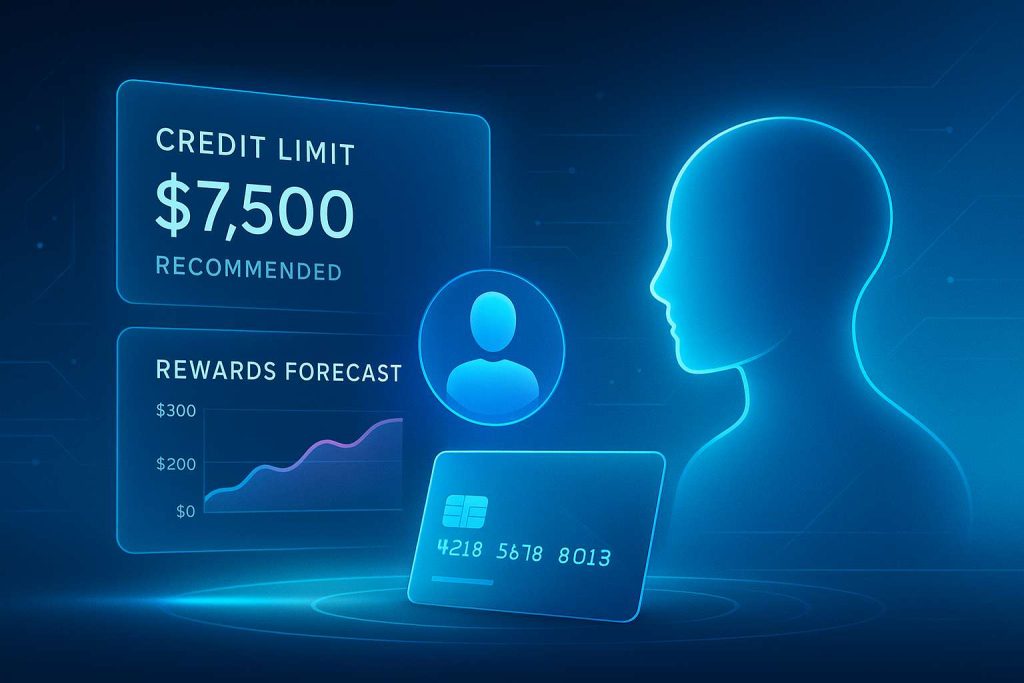In today’s financial landscape, artificial intelligence is reshaping the way Americans manage their card limits and rewards. The integration of this advanced technology into the credit industry is transforming the way cardholders interact with their credit options, offering more tailored solutions and engagements.
As these AI-driven innovations continue to evolve, they promise a future where credit is not only more accessible but also more aligned with personal lifestyle needs and financial goals. This blog delves into how this transformation is taking shape and what it means for consumers.
AI-driven credit personalization

Artificial intelligence is having a profound impact on the personalization of credit card services. By analyzing vast datasets, AI can determine user spending habits, financial behavior, and lifestyle preferences to offer tailored credit limits and rewards. This means users receive offers that are more relevant to their personal financial strategies rather than generic credit offers.
These AI systems consider factors like spending trends, repayment history, and even social media activity to make these decisions. This holistic view ensures that cardholders receive strategic credit increases when they need them and reward programs that match their lifestyle.
How AI calculates custom limits
AI doesn’t just personalize credit card services; it revolutionizes how credit limits are set. Traditional methods rely on static credit scores and basic income data. However, AI goes beyond these indicators, utilizing real-time data to make more accurate limit assessments. For instance, if you’re consistently spending within your means and paying on time, AI systems recognize this behavior and might increase your limit pre-emptively.
This predictive system not only reduces the risk of over-lending but also allows users to have a credit limit that truly reflects their financial situation. It’s a fluid process that adjusts as one’s financial life evolves, providing a sense of empowerment and stability to the cardholder.
Enhancing rewards through AI
Beyond credit limits, AI is making strides in how rewards are structured and delivered. Traditional reward systems often apply a one-size-fits-all model, which can be ineffective for many users. However, with AI, credit card companies can personalize rewards based on user behavior and preferences, leading to a more relevant and engaging rewards system.
This means if a cardholder frequently dines out, they might notice an increase in cash back or points for restaurant purchases. Such tailored rewards not only enhance user satisfaction but also encourage continued usage and loyalty to the card issuer. Companies like Chase and American Express are already exploring these AI-powered solutions to differentiate themselves in a competitive market.
Practical tips for maximizing AI-driven rewards
To make the most out of AI-powered credit cards, consumers should stay informed about their spending patterns and always monitor their account activity. Regularly reviewing your credit card statements can help you identify areas where you might qualify for increased rewards. Additionally, signing up for alerts or newsletters from your credit card issuer can give you a heads-up on new personalized offers.
Consider cards that are known for their tech-forward approaches like the Capital One Savor or the American Express Blue Cash Preferred. By strategically choosing and using cards that leverage AI, you can maximize the benefits of tailored offers and rewards.
The future of AI in personal finance
The personalization of credit limits and rewards through artificial intelligence is just the beginning. As AI technology continues to advance, we can expect even more sophisticated financial tools that will offer unparalleled personalization and flexibility. This evolution won’t just change how we interact with credit cards, but also how we approach our financial futures.
AI’s potential to enhance financial well-being is enormous, promising to empower consumers with a proactive approach to managing finances. The fusion of technology and finance will not only simplify complex decisions but also foster a deeper connection between consumers and their financial services, creating a future ripe with opportunities for personalized financial health.



